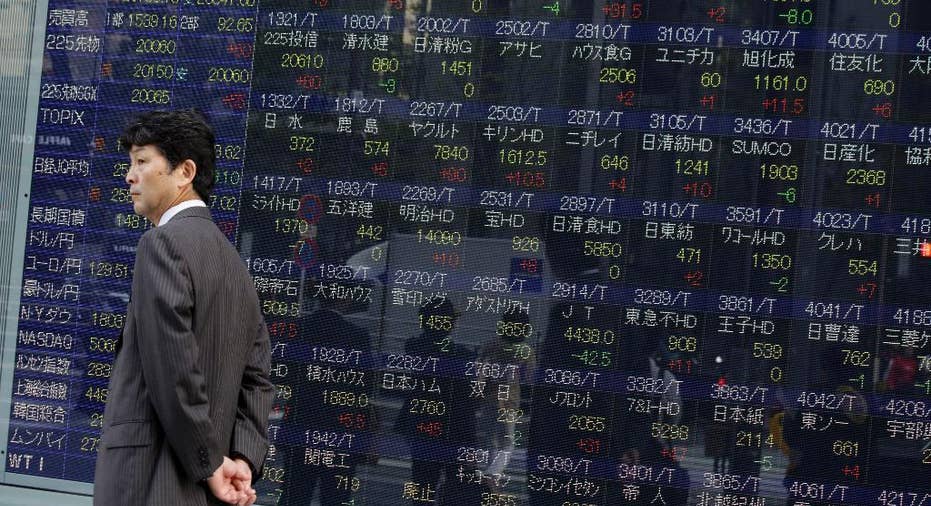Japan's Rebound Leads Asian Shares Higher

Stocks in Japan rebounded Monday, after getting slammed by Britain's decision last week to leave the European Union, helping lead much of Asian equities higher.
However, a move by China's central bank to weaken the yuan by the most since August last year proved unsettling, keeping investors and traders wary that the fallout from the 'Brexit' vote was far from over.
The Nikkei Stock Average finished up 2.4%, recouping some of Friday's losses when the market plunged 8%. The benchmark index remains near its lowest levels since October 2014, after four straight weeks of selling.
Investors are pushing up safe-haven assets once again, buying everything from gold to the Japanese yen to Japanese government bonds.
Gold prices were up 0.7% at $1,332 a troy ounce, while yields on several Japanese government bond tenors slid to record lows. The 10-year bonds now return minus 0.209%. Meanwhile, the Japanese yen was last up 0.3% at 101.89 against the U.S. dollar.
Traders and analysts said trading will remain volatile this week, as investors factor in how they think the U.K. will move forward in its relations with Europe, and monitor further financial contagion.
"Things are settling down a little bit," said Rob Levine, head of Asian equities at Hong Kong-based brokerage CLSA. But, "investors are still trying to digest who the big winners and losers are," noting it may take a while for the street to figure that out.
Losses in the region's stock markets eased on Monday. The Shanghai Composite Index recovered to gain 1.2% and Australia's S&P/ ASX 200 was up 0.5%, while South Korea's Kospi was up 0.1%.
Chinese shares largely shrugged off the yuan's move. A subindex that tracks coal stocks jumped 4.3%, and shares of Xinyu Iron & Steel rallied 8% while Anyang Iron & Steel gained 6.1%.
Investors were speculating about lower prices in those industries, following plans to cut capacity. China's national economic planning body outlined a goal to cut 280 million metric tons of coal output capacity and 45 million tons of excess steel capacity. Also, Baosteel Group and Wuhan Iron & Steel Group, two of China's biggest steel producers, said they plan to restructure, according to filings by their listed units on Sunday.
Bucking the region's recovery, Hong Kong's Hang Seng Index was off 0.4%, though it had narrowed earlier declines.
Early Monday, the People's Bank of China fixed the yuan at 6.6375 to one U.S. dollar, a 0.9% depreciation from its guidance early Friday. In August 2015, the central bank devalued the currency by 1.1% in one go.
A weaker yuan comes after the U.S. dollar rallied 2.5% against major global currencies on Friday. That was the result of a surge in safe-haven currencies in the aftermath of the U.K. referendum.
But the focus for currencies in Asia remains on the Japanese yen. The government and the Bank of Japan are under growing pressure to curtail its strength, after the yen reached its strongest levels since November 2013 on Friday.
"Speculation is growing that the Bank of Japan will add an extra Yen10 billion a month to its asset purchasing program to try to stem the strength in the yen," said Angus Nicholson, market analyst with brokerage IG. "And investors will be watching the yen very closely to see if it begins to move on intervention speculation."
The British pound, which tanked Friday, was weakening further during Asian hours Monday, falling 2.2% against the U.S. dollar. In other currencies, the Australian dollar was off 0.9% at US$0.74.



















